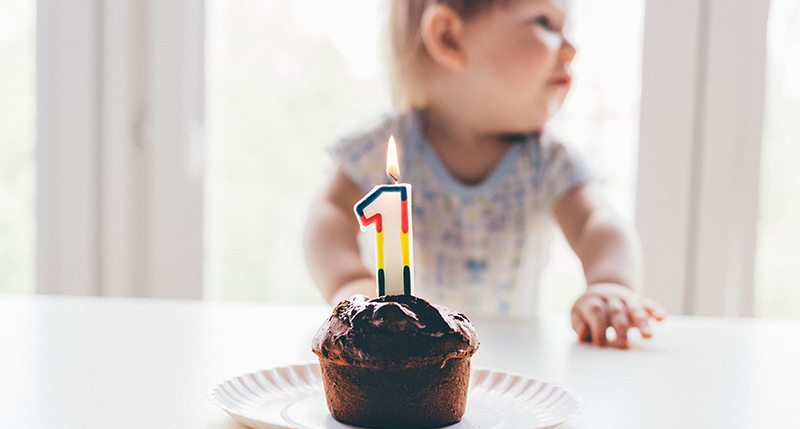Parenting is an incredible journey that brings forth many milestones, but perhaps one of the most remarkable stages is when your little one turns one year old. That first birthday marks a significant turning point, not only for the child but for parents as well. It’s a time of growth, joy, challenges, and endless discovery. Let’s dive into why the one-year mark deserves a celebration, the developmental milestones to look out for, and how parents can best support their child through this exciting phase.
Why is the One-Year Mark So Important?
The first year of a child’s life is filled with rapid development. From newborn to infant and now transitioning into toddlerhood, the amount of growth that takes place is astounding. Babies go from being completely dependent on their caregivers for everything to exploring the world with curiosity and (sometimes) surprising independence.
By the time your baby turns one, they have typically started to achieve significant physical, emotional, and cognitive milestones. It’s a time when they begin to show their personality, develop preferences, and express themselves in more meaningful ways. This period sets the foundation for their future growth, which makes it a special time for families to celebrate and reflect on their child’s progress.
What Developmental Milestones Should You Expect?
At one year old, babies are blossoming in various areas of development. Here are some of the major milestones you can look out for:
1. Physical Growth and Mobility
At this age, many babies have either started walking or are very close to taking their first steps. This is an exciting and monumental milestone as it marks the beginning of their physical independence. While some one-year-olds may still prefer crawling, most are able to stand with support, cruise along furniture, or take wobbly steps while holding onto a caregiver’s hand. This newfound mobility opens up a whole new world of exploration for them, making baby-proofing the house essential.
Along with walking, one-year-olds often develop better hand-eye coordination. You’ll notice that your little one is now able to grasp small objects, pick up toys, and even feed themselves finger foods. Their fine motor skills continue to improve as they experiment with stacking blocks, turning pages in books, or scribbling with crayons.
2. Cognitive Development and Problem Solving
One-year-olds are little problem solvers in the making. At this stage, they begin to understand cause-and-effect relationships. For example, they may drop a toy repeatedly to watch you pick it up or press buttons on their toy to hear sounds and see lights. Their brain is constantly working to make sense of the world, and they learn by testing out different actions and observing the results.
Language development also takes a big leap forward. While one-year-olds may not be talking in full sentences, they typically understand simple words and instructions like “no,” “come here,” or “wave bye-bye.” Some may have already said their first words, like “mama” or “dada,” and their vocabulary will continue to grow as they are exposed to more language.
3. Social and Emotional Growth
One-year-olds are developing a strong sense of attachment and trust with their caregivers. They often seek comfort and reassurance from their parents or familiar adults, especially in unfamiliar situations. At the same time, they are learning to explore the world independently, which can lead to separation anxiety when they realize their parents aren’t always within arm’s reach.
Emotionally, this is a time when babies start to show a wider range of feelings. You’ll likely notice more smiles, laughter, and even frustration as they try to communicate their needs and wants. Socially, one-year-olds enjoy interactive play, such as peek-a-boo, pat-a-cake, or playing with other children, even if their idea of “playing together” is simply sitting next to another child.
How Can Parents Support Their One-Year-Old’s Development?
Now that you know what to expect from your one-year-old, you may be wondering how you can best support their growth during this crucial stage. Here are some tips to help you guide and nurture your child’s development:
1. Encourage Safe Exploration
One-year-olds are naturally curious, so creating a safe environment where they can explore freely is key. Baby-proofing your home is essential, but also try to provide opportunities for your child to explore different textures, objects, and spaces. You can create safe play areas with toys that encourage problem-solving, such as shape sorters, stacking toys, or puzzles.
2. Support Language Development
Talking to your child regularly is one of the best ways to support their language development. Narrate your day, describe what you’re doing, and point out objects or actions as you go. Reading books together is also a fantastic way to introduce new words and concepts. Don’t worry if your one-year-old doesn’t respond with words just yet; they’re absorbing everything you say and will eventually begin to mimic your language.
3. Encourage Independence
While your one-year-old may still need plenty of help, it’s important to encourage independence where appropriate. Let them try feeding themselves, allow them to explore their surroundings, and give them opportunities to practice new skills like standing, walking, or using their hands to manipulate objects. Offering praise for their efforts will help build their confidence and motivation to keep learning.
4. Build Social Connections
Although your one-year-old may not fully engage in cooperative play with other children yet, socializing with other kids is beneficial for their development. Arrange playdates or attend parent-child groups where your child can interact with peers in a safe environment. This exposure to other children helps them develop social skills like sharing, taking turns, and understanding different emotions.
5. Provide Emotional Support
One-year-olds can experience a range of emotions, from joy to frustration. It’s important for parents to offer comfort and reassurance during moments of distress, especially when separation anxiety or frustration arises. Responding to their emotional needs helps foster a sense of security, which is essential for their overall well-being.
Celebrating the One-Year Mark
As your child turns one, take a moment to reflect on the incredible growth they’ve experienced over the past year. This milestone is not just a celebration of their physical and cognitive development, but also a recognition of your journey as a parent. You’ve navigated sleepless nights, countless diaper changes, and the ups and downs of parenting a baby. Now, as your little one enters toddlerhood, the adventures are just beginning.
Whether you’re planning a big birthday bash or a quiet family celebration, the one-year mark is worth recognizing. So let’s hear it for the one-year-olds! They’ve grown, they’ve learned, and they’ve brought endless joy to the lives of those around them. Here’s to the next chapter in their journey of discovery.



